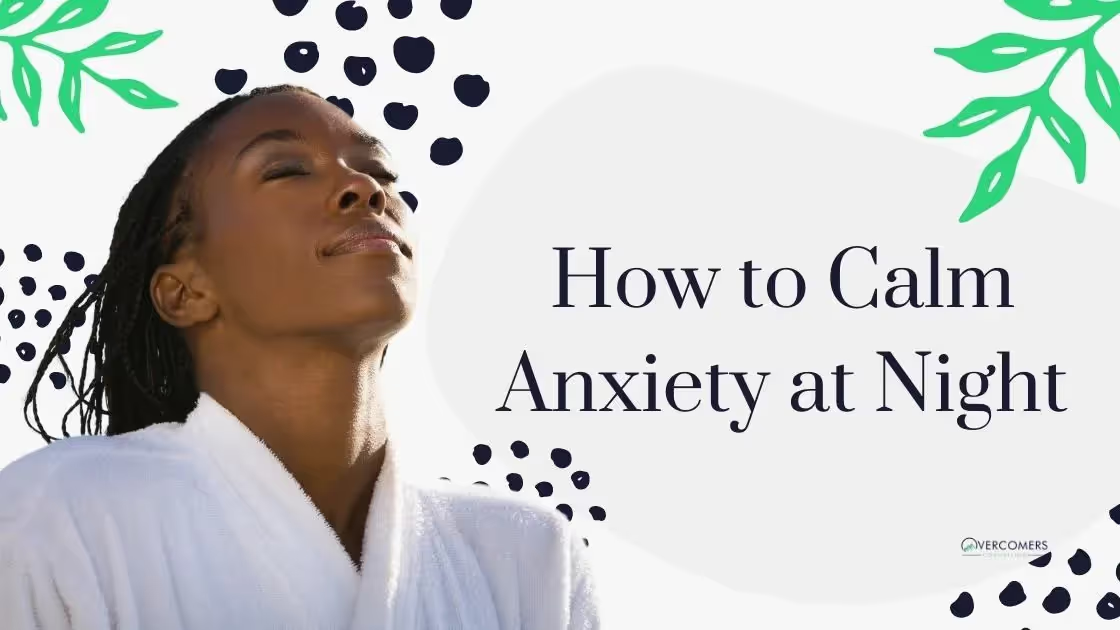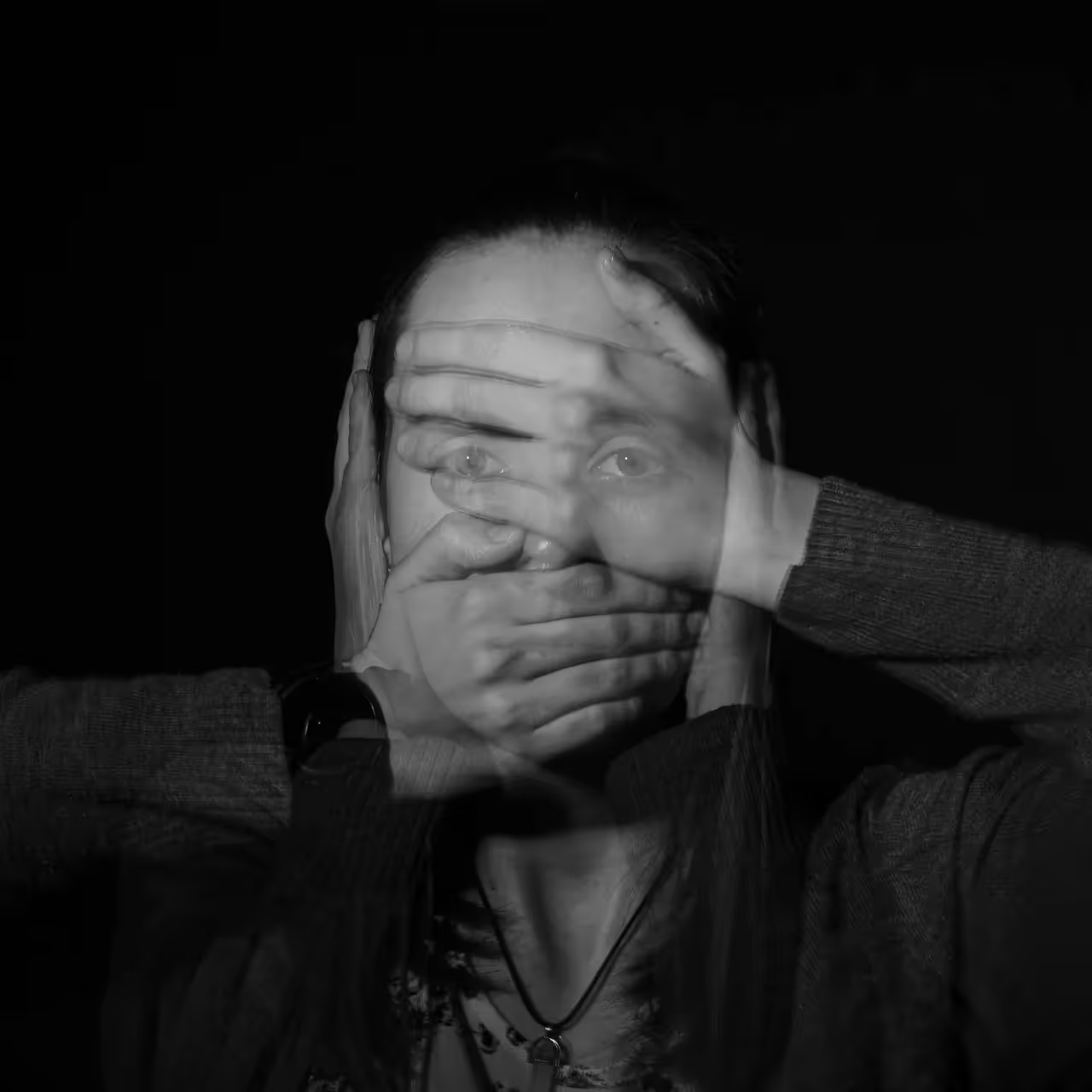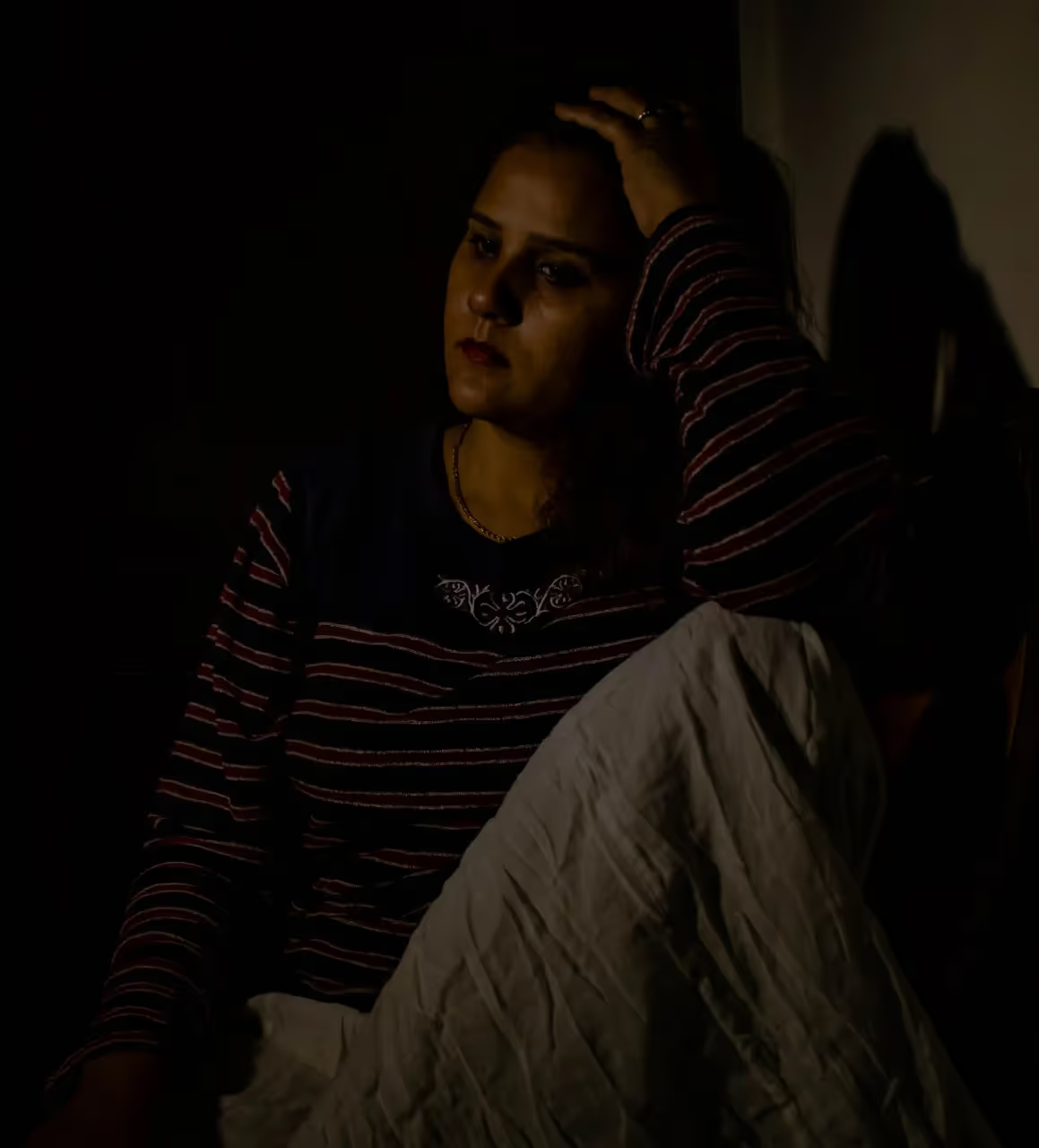For many people, anxiety can be most pronounced at night. This can make it difficult to fall asleep and stay asleep, which can lead to further anxiety and a...

For many people, anxiety can be most pronounced at night.
This can make it difficult to fall asleep and stay asleep, which can lead to further anxiety and a vicious cycle.
If you're struggling with anxiety at night, there are a few things you can do to try to calm your mind and calm your nighttime anxiety.

Anxiety can be worse at night for a variety of reasons.
For one, it's often easier to ruminate on worries and fears when you're not distracted by the hustle and bustle of the day.
Additionally, adrenaline and cortisol (stress hormones) tend to be higher at night, which can exacerbate anxiety symptoms.
If you're not used to managing anxiety, it can be especially challenging to cope with at night.
An important first step in learning how to calm anxiety at night is to identify what triggers or aggravates your symptoms.
Once you know what your triggers are, you can try to avoid them if possible.
Common triggers for anxiety at night include:
- Stressful events or thoughts from the day: If you find yourself worrying about things that happened during the day or things you have to do tomorrow, it can be helpful to write them down and set them aside until morning. This can help you to clear your mind and focus on relaxing before bed.
- Caffeine: Caffeine is a stimulant and can therefore make anxiety worse. If you're struggling with anxiety at night, it's best to avoid caffeine after lunchtime.
- Alcohol: Although alcohol may initially help you to feel relaxed, it can actually make anxiety worse in the long run. Alcohol can cause dehydration and disrupts your sleep, both of which can aggravate anxiety symptoms.
- Certain medications: Some medications, such as beta-blockers, can make anxiety worse. If you're taking medication for anxiety or another condition, talk to your doctor to see if it could be exacerbating your symptoms.
Once you've identified your triggers, there are a few different relaxation techniques you can try to help ease anxiety at night.
These include:
- Breathing exercises: Focusing on your breath can help to distract from anxious thoughts and ease symptoms of anxiety. One breathing exercise you can try is to count to four as you inhale, hold your breath for a count of four, and then count to four as you exhale.
- Progressive muscle relaxation: This involves tensing and relaxing different muscle groups in your body one at a time. As you tense a muscle group, focus on the sensation of the muscle contracting. As you relax the muscle, focus on the sensation of the muscle releasing. This can help to both distract from anxious thoughts and ease physical symptoms of anxiety such as tense muscles.
- Guided imagery: Guided imagery involves using your imagination to visualize a calm, peaceful scene. This can help to redirect your focus from anxious thoughts and relax your mind and body.

Anxiety can make it difficult to fall asleep and stay asleep, which can lead to further anxiety and a vicious cycle.
Practicing healthy sleep habits can help you learn how to calm your anxiety at night and improve your overall health.
Some tips for better sleep include:
- Establishing a regular sleep schedule: Going to bed and waking up at the same time each day can help to regulate your body's natural sleep rhythm.
- Avoiding caffeine and alcohol before bed: As mentioned earlier, both caffeine and alcohol can make anxiety worse and disrupt sleep.
- Creating a relaxing bedtime routine: A soothing bedtime routine can help to signal to your body that it's time to wind down and relax. This might include taking a warm bath, reading a book, or stretching.
-Limiting screen time before bed: The blue light emitted by screens can disrupt your natural sleep rhythm. Try to avoid using electronic devices for at least an hour before bed.
If you're struggling to calm your anxiety at night on your own, it's important to seek professional help.
A therapist can provide you with support and guidance in managing your anxiety.
If your anxiety is severe, you may also need medication to help ease your symptoms.
Don't hesitate to reach out for help if you're struggling to manage your anxiety.
Anxiety can be a debilitating condition, but there are ways to ease symptoms and get relief.
If you're struggling with anxiety at night, try to identify your triggers and use relaxation techniques to calm your mind.
You should also practice healthy sleep habits and seek professional help if your anxiety is severe.
With treatment and self-care, you can ease your anxiety and get the relief you need.
Other activities which have been found helpful in reducing both immediate feelings of anxiousness and long-term anxieties associated with chronic disorders include yoga, journaling, nature walks, art therapy, volunteering, and other low-stress activities. Additionally, developing a healthy lifestyle incorporating adequate sleep, physical activity, and nutritious meals can help reduce overall stress levels.
It's important that you feel comfortable discussing personal matters with your therapist in order to open up and get more out of therapy sessions; therefore finding someone who meets certain criteria like experience level, expertise areas, and personality is key when selecting a therapist who can give meaningful feedback about how best handle issues related to anxiety or other mental health concerns.
Ignoring anxiety can exacerbate symptoms and make it more challenging to manage over time. This can result in a negative impact on your personal, professional, and social life, leading to feelings of isolation and even depression.
Addressing anxiety is crucial because it can significantly impact your quality of life and overall well-being. Left untreated, anxiety can lead to more severe mental health issues, relationship problems, and difficulty functioning in daily life.
The duration of anxiety counseling varies for each individual, depending on the severity of their anxiety and their progress in therapy. Our therapists will regularly assess your progress and adjust your treatment plan as needed.
Yes, Medicaid provides insurance coverage for therapy services specifically designed to help individuals struggling with anxiety, depression, and other mental health conditions.